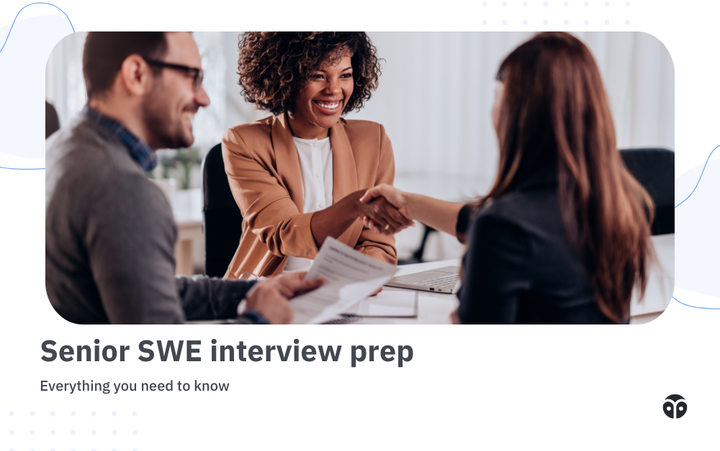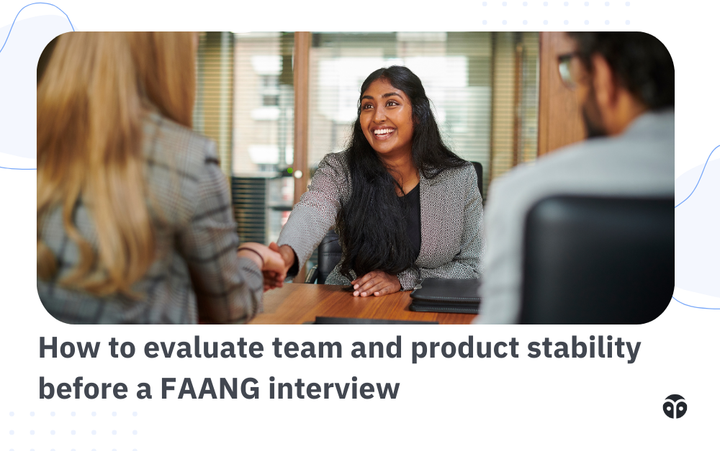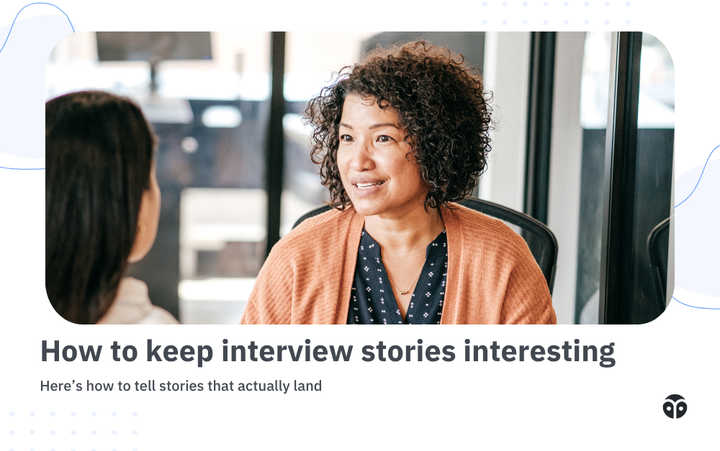What to expect during Meta Software Engineering interviews
Everything you need to know about the interview process at Meta for Software Engineers

Many software engineers want to work at Meta due to its innovative projects, cutting-edge technology, and substantial impact on millions of users worldwide. Meta’s well-known for its rigorous interview process, which can be intimidating if you don’t know what to expect.
We sat down with Formation team member Daniel Tomko to get the inside scoop on Meta interviews.
During his time at Meta, Daniel conducted over 600 interviews, formalized and wrote most of the questions for the behavioral interview, was on the post-interview debrief and candidate review meetings, and started the “feedback on feedback” process to help continue interview training, which was rolled out worldwide.
So, what does the interview process for Meta company look like? Here’s everything you need to know.
An overview of the interview process at Meta
As with most interviews, the first step at Meta is to speak with a recruiter. From there, you’re given a technical screen that’s 45 minutes long. If you pass the technical screen, you’ll be placed into a full interview loop, with specific interviews tailored to your experience level and the role that you’re going after. These loops typically include two coding interviews, a system design interview for mid-level to senior-level engineers, and a behavioral interview.
After completing all of the interviews, candidate information is sent to a committee for candidate review.
Meta’s values and priorities
One important thing to know about Meta, which is different from some other companies, is that the company highly prioritizes productivity. They want to see decisive and fluent coders and will prioritize people who are confident, make good decisions, and will be really productive while on the job.
Meta also cares deeply about making the interview process as fair and equitable as possible. Interviewers undergo extensive training to ensure that every interview is well-calibrated and has the exact same rubric and flow. Many measures are in place to ensure that candidates are given every chance to succeed and are evaluated based on overall performance. Throughout the interview process, interviewers are taught to look for “signals” that you’re a good fit (or not), and every step in the process is designed to give both Meta and the candidate as many opportunities as possible to provide and assess those signals.
This means that even if you feel like one interview didn’t go as well as you’d hoped, don’t give up. It’s entirely possible to underperform in one area and exhibit the necessary strengths and skills in a different interview.
Am I ready to interview at Meta?
Because Meta values productivity, ensure you’re smooth and fluent in code execution. The hiring committees and interviewers are trained to look for how clean your code is—they want to see people write code that they’d be happy to accept into the source base.
Mid-level and senior-level engineers will need to be confident in their ability to navigate a system design interview and solve ambiguous problems effectively under pressure.
All candidates will need clear answers to behavioral questions using the STARR method. Participating in mock interviews is the best way to practice for these interviews and can help you decide if you’re ready for an interview at Meta.
What you need to know about the recruiter screen
The recruiter screen at Meta is designed to explain the process, get to know the candidate a little better, and assess your experience level so that you can be placed in the correct interview loop. The recruiter will ask questions about your resume to confirm that you are who they think you are and there were no misunderstandings. If you’re chosen for a recruiter screen, you’ll likely be passed through to the next step.
This portion of the interview isn’t something to worry too much about! Be ready to say why you’re excited to work at Meta, but you don’t have to be too specific or detailed. If you want to get the most out of this call, start to build a relationship with your recruiter. They are your friend throughout the process. Don't be overly friendly, but keep in mind that you will talk to this person throughout the process.
What to know about the technical screen
The technical screen at Meta is 45 minutes long and has two coding questions. It’s critical that you answer both questions within the allotted timeframe.
There’s a strict structure to these interviews that the interviewer will guide you through:
- They pose a question
- Talk about the question, answer questions
- Code it up
- Test and debug
- Talk about optimization
- Move on to the next question
Your interviewer will encourage you to jump into coding as quickly as possible. There is no small talk, which can be awkward for people. You don’t come into the call and build a rapport—you don’t want to waste that time.
These questions are “whiteboard style,” and you’ll use Coderpad or a similar tool to participate. Remember that they’re looking for decisive, proficient software engineers. Move with purpose and move as quickly as you can with high confidence that you’re doing a good job and not making mistakes. Perfection isn’t the goal, but they have to see the possibility of you being a highly effective coder.
What to know about Meta system design interviews
There are a number of variants to the system design interview at Meta. Which interview you receive will depend on your background and what type of role you're targeting. Most generalists are given a choice, and your recruiter can help you decide what’s best for you.
Regardless of which specific interview you choose, the shape of the interview is similar: they're going to present a somewhat ambiguous problem, and it's going to be your job as the candidate to resolve that ambiguity. You’ll need to scope the problem appropriately and then come up with one or more solutions or potential approaches to solving this problem while being able to explain the trade-offs to defend your choices.
This interview is very dynamic, and you’ll converse with your interviewer throughout. They're looking for how candidates take in feedback, discuss trade-offs, make the right choices, and change designs as parameters change.
What to know about the coding interviews during Meta’s onsite loop
The coding interviews during Meta’s onsite loop are very similar to the initial technical screen. You’ll be given two problems to complete within 45 minutes, whiteboard style.
Remember that Meta is looking for confidence and proficiency during these interviews. Try not to get hung up on details. For example, if you forget a function or are unsure if it exists, lead with confidence. Say to the interviewer, “I’m going to assume this exists. Is this okay?”
It shows great confidence and experience when you can make an assumption like that and not get distracted by it. An experienced programmer in a real environment would look it up really quickly. Don't get distracted from your process of writing good code.
What to know about behavioral interviews at Meta
Behavioral interviews at Meta are similar to standard behavioral interviews. Meta doesn’t have a clear set of leadership principles or ideas they want everyone to embody; they value diverse opinions and experiences.
They want candidates to demonstrate and embody a growth mindset and display how they learn from past experiences. They will ask you very specific questions about how you’ve handled things in the past, like “Tell me about a challenging situation you’ve experienced where you’ve disagreed with a colleague” or “Tell me about a mistake you made at work.” It’s important not to give soft answers to these questions or blame others.
Provide open and honest stories about those situations. You don't always have to be perfect, but understanding where you aren’t perfect and that you learned from those experiences is highly valued.
What to know about candidate review at Meta
The interview feedback written by all interviewers is assembled into a “packet” provided to a committee. The committee reviews all packets and discusses the feedback on all candidates. This is a debrief session where they will look for holes in the feedback and sometimes even go back and do another interview to ensure they have all the information they need. Be flexible and be in contact with the recruiter at this point to stay informed on the process.
From there, it’s passed on to candidate review, and decisions are made about whether or not to move forward with an offer.
Get holistic interview prep and negotiation support with former Meta SWEs
The Formation Fellowship gives mid-level and senior engineering job seekers everything they need to land their dream roles—including personalized skill brush-ups, unlimited mock interviews with experienced software engineers and hiring managers from top-tier tech companies, and offer reviews and negotiation support.
Apply here for unconditional support from a team of engineering mentors, technical recruiters, career coaches, and more.



